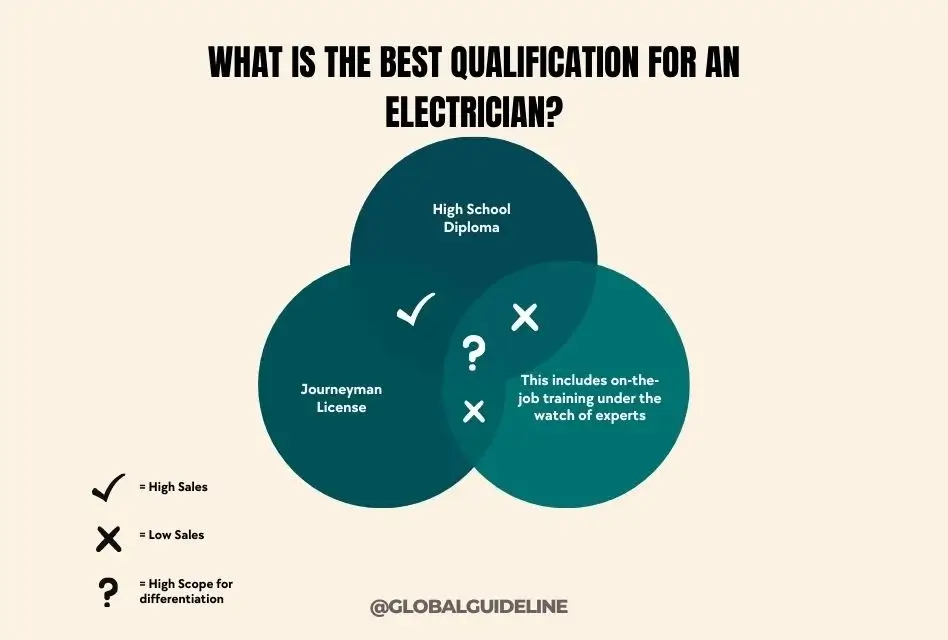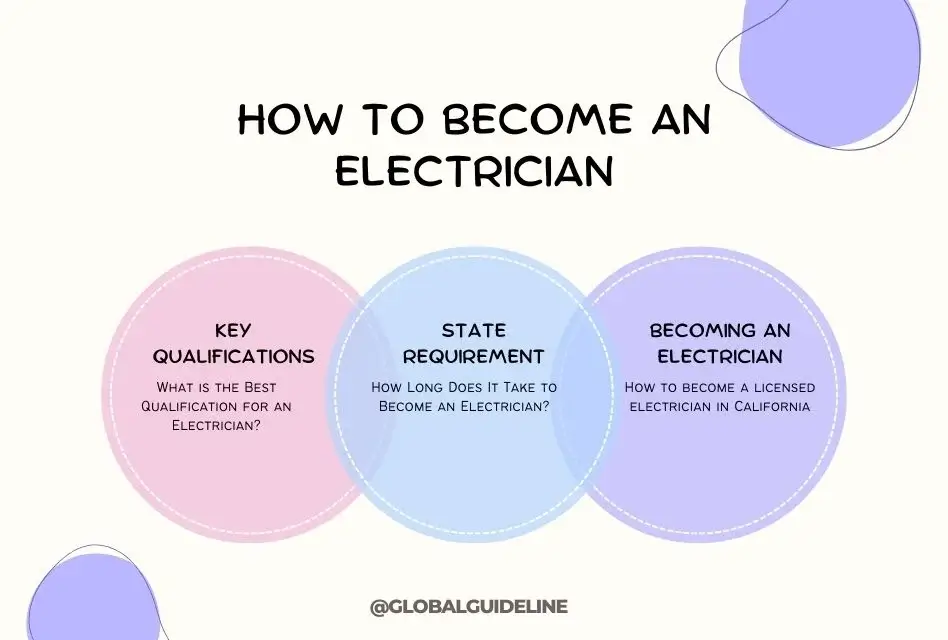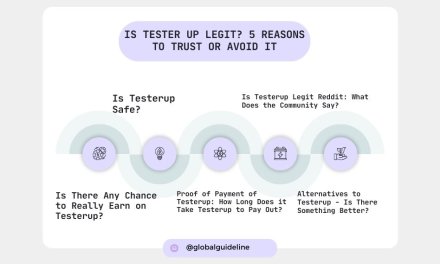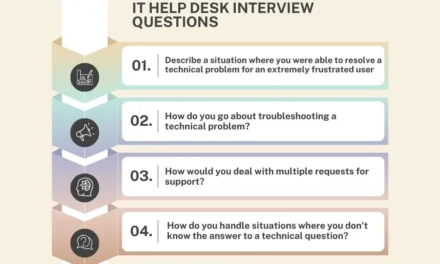A career as an electrician is so promising, considering the many avenues one can pursue, competitive salaries, and job security. With the increasing demands, many people have been considering careers in the skilled trades. Whether you’re starting from scratch or looking to advance in the electrical field, this guide will walk you through how to become an electrician-from steps to take, the qualifications that must be met, and the potential job opportunities you can unlock.
Table of Contents

What is the Best Qualification for an Electrician?
First, it is important to understand what qualifications are required in becoming an electrician before detailing the process of how someone becomes one. The most preferred qualification for an electrician normally includes a mixture of formal education, on-job training, and licensing.
Key Qualifications:
- High School Diploma: The minimum educational qualification generally required to become an apprentice is a high school diploma or its equivalent.
- This includes on-the-job training under the watch of experts; for instance, an apprenticeship will provide hands-on experience for working in the field.
- Journeyman License: After finishing your apprenticeship with the required hours of on-the-job training, you would need to take a licensing exam and become a journeyman electrician.
- Continuing Education: Almost all states require continuing education to maintain a license to current standards of the National Electric Code and industry best practices.
How Long Does It Take to Become an Electrician?
The number of years it takes to become an electrician will vary depending on individual needs and the speed at which one completes each of the steps involved in their state to become an electrician. These various steps usually start with education, including apprenticeship and licensing.
The typical length of time includes:
- High School Education: 4 years if one starts high school without prior schooling.
- Apprenticeship Program: 4 to 5 years, where the applicants must have 8,000 hours of on-the-job training combined with classroom instruction.
- The next step, after completing the apprenticeship, is licensing as a journeyman. For this purpose, one needs to pass a licensing examination.
State Requirement
- How Long Does It Take to Be an Electrician in Texas? In Texas, the journey to an electrician usually takes about 4 to 5 years through an apprenticeship program and then after passing the journeyman licensing exam.
- How Long Does It Take to Be a Florida Licensed Electrician? It’ll take some 4 to 5 years in Florida, too, and an apprenticeship program is an indispensable ingredient.
How to Become an Electrician Apprentice
The majority of electricians enter the field through an apprenticeship. Through an apprenticeship, students gain hands-on work experience along with additional classroom time to learn the basics necessary for independent work in the electrical field.
Steps to Becoming an Electrician Apprentice:
- Get a High School Diploma: First and foremost, ensure you have a high school diploma or the equivalent; emphasizing classes such as math, physics, and shop classes.
- Research Apprenticeship Programs: The apprenticeship opportunities may be found through local unions, independent electrical contractors, or community colleges.
- Apply for Apprenticeships: Apply to journeyman electrician apprenticeships, including aptitude tests and interviews.
- Complete the Apprenticeship: You would complete an apprenticeship of about 8,000 hours of on-the-job training, combined with hundreds of hours of classroom instruction.
- Pass the Journeyman Exam: You are qualified to take a journeyman licensing exam after completion of the apprenticeship.
How to become a licensed electrician in California
California has laid down some specific criteria for becoming a licensed electrician, which will be good to know first before one takes up the career path.
Steps in California – Specifically:
- Enroll in an Apprenticeship Program: As explained in other states, start going to one that has been approved by the California Department of Industrial Relations.
- On-the-Job Experience: Following this, you are supposed to undertake on-the-job training and hence need an additional 8,000 hours of work experience.
- Complete Classroom Instruction: You will take classroom instruction that covers electrical systems, safety, and the National Electric Code.
- Get State Certification: As you complete your apprenticeship, apply for certification to take the test. You cannot practice as a licensed electrician in California until you have passed this examination.
Finding a Job as an Electrician
One of the major positive sides of becoming an electrician is the field of opportunities for jobs. Being a licensed electrician opens up many different career choices depending on what your interest and specialty may be.
1. Residential Electrician
Overview: The residential electrician installs, maintains, and repairs electrical systems at home. These include wiring, lighting, circuit breakers, and many other features.
Employment Opportunities:
- New home construction
- Home renovation projects
- Electrical system upgrades
- Repair and maintenance services
2. Commercial Electrician
Overview: A commercial electrician is concerned with the installation of electrical systems at workplaces, stores, and warehouses. It entails dealing with higher voltages compared to a residential electrician.
Employment Opportunities:
- Installation of electrical facilities in new commercial structures
- Maintaining electrical systems in old structures
- Upgrading and retrofitting of old and obsolete electrical systems
3. Industrial Electrician
Overview: The industrial electrician works at manufacturing plants, factories, and other industrial locations. They are required to maintain and repair industrial machinery, equipment, and electrical systems.
Job Opportunities:
- Electrical maintenance in factories
- Installation of industrial equipment
- Complex machinery troubleshooting and repair
4. Maintenance Electrician
Overview: Maintenance electricians keep electrical systems in good working order in a variety of settings so that they work both efficiently and safely.
Job Opportunities:
- Routine maintenance in residential, commercial, or industrial buildings
- Emergency repair services
- Preventative maintenance programs
5. Master Electrician
Overview: Master electricians have a very great level of knowledge and experience in the trade. They mostly oversee projects, manage groups of people, and even start their own electrical contracting businesses.
Employment Opportunities:
- Overseeing projects that involve major electrical installations
- Providing electrical consultations
- Having an independent business in electrical contracting
6. Electrical Inspector
Overview: Electrical inspectors make sure that the grades of electrical installations are according to national, state, and local code requirements. This job is very sensitive regarding safety and regulatory concerns.
Employment Opportunities:
- Inspect new electrical installations
- Code compliance review of upgrades and repairs
- Government agencies and private inspection firms

How to Become an Electrician in Canada
If you want to become an electrician in Canada, then the process is similar to that in the U.S., but the system is slightly different.
Steps to Becoming an Electrician in Canada:
- School: Get your high school diploma, with emphasis on classes in math and physics.
- Obtain an Apprenticeship: Typically, becoming an apprentice in Canada is handled through the provincial or territorial trade organization to which one applies.
- Complete the Apprenticeship: Typically, the apprenticeship requires 4 to 5 years with a combination of 8,000 hours between on-the-job training and classroom instruction.
- Pass the Red Seal Exam: The Red Seal certification allows electricians to work in other provinces without taking further licensure.
FAQs for Canada:
- How Much Do Electricians Make in Canada? Generally, electricians are well-paid, but their salaries vary according to the province they work in and the years of experience.
- Are There a Lot of Electricians Needed in Canada? Indeed, electricians are needed very much in Canada, especially in construction and renewable energy industries.
Job Interview Questions for Electricians
Preparation for job interview is necessary for an electrician, as he should know his profession, have practical experience, and be prepared to answer popular questions.
Common Interview Questions for Electrical Jobs:
- Why do you think you are qualified to work with electrical systems?
- Describe, in detail, projects you have worked on and your role and responsibilities within those projects.
- How do you maintain job site safety?
- Explain your knowledge of safety procedures and how you work to reduce or eliminate hazards.
- Describe a time when you were required to troubleshoot an intricate electrical problem?
- Provide specific example, focusing on problem-solving skills and technical knowledge.
- How do you keep yourself current regarding changes to the NEC?
- List any continuing education, workshops, or certifications that you have attended to keep your practice current.
- What is your experience with project management or leading a team?
- Describe experience, if any, in managing projects or supervising other electricians.
Licensing Requirements Across Different States
Licensing for electricians is state-specific; it is crucial to learn about the various approval criteria in the specific region you decide to work in.
State-by-State Overview of Licensing Requirements:
- Texas: Completion of apprenticeship required, along with 8,000 hours of experience and passing a journeyman examination.
- Florida: Like Texas, Florida requires completion of an apprenticeship and a journeyman license with other similar stipulations for a master electrician license.
- California: You must undergo an approved apprenticeship and then pass the certification examination.
Frequently Asked Questions
1. How Long Does It Take to Become an Electrician?
It generally takes about 4 to 5 years to become a licensed electrician, which solely depends on each state’s requirement.
2. How Do I Get Started As An Electrician in California?
Take an apprenticeship program. Log 8,000 hours of on-the-job training. Complete classroom instruction requirements. Pass the state certification exam.
3. How Do I Become an Electrician in Canada?
Students have to spend a high school education and then take an apprenticeship program to complete 8,000 hours of training for the Red Seal exam to receive national recognition.
4. Are Electricians in Demand in Canada?
Yes, electricians are in demand right across Canada, particularly in construction and renewable industries.
5. What is the best qualification for an Electrician?
The best qualification would include an apprenticeship, journeyman licensing, and continuing education to stay updated with the latest industry standards.

Conclusion
The career as an electrician is quite promising, with good remunerations and ample job opportunities. By following the qualifications, serving through an apprenticeship, and gaining your license as outlined, you will have opened yourself up for job opportunities in residential, commercial, and industrial settings, as well as specialized electrical jobs. A career as an electrician-which is very much in demand throughout both the United States and Canada-offers some stability, chances for professional growth, and work within an environment that is entertaining and very important in society. From beginning an electrician’s career to making advancement in this field, this career is included among the best trades with great future prospects.










